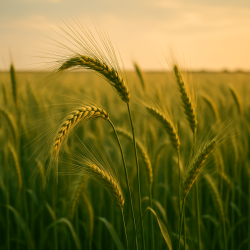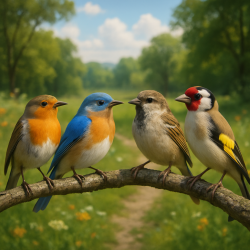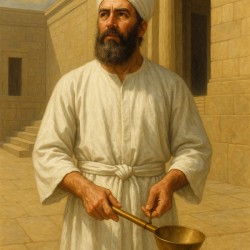
All posts in: Torah-Portion
-
 4 weeks ago
4 weeks agoThere is no such thing as a coincedence
The Rabbeinu Bechaya in our parashah (26:21) teaches that the Torah approach is to attribute everything to Hashem. When we are successful, we shouldn’t ..
Written by Daniel Shasha
-

-
 4 weeks ago
4 weeks agoThe world: created for you!
The Torah cautions ‘‘ולא תונו איש את עמיתו”, “one must not afflict their fellow” (25:14). The Chafetz Chaim asks, our Sages teach that ..
Written by Daniel Shasha
-
 4 weeks ago
4 weeks agoShemitah: against all odds
There is something unique we find about Shemitah, something we don’t find by other mitzvos. There is actually a guarantee that those who observe it will ..
Written by Daniel Shasha
-
 1 month ago
1 month agoA true masmid
Our Parashah teaches us that that the menorah should burn “before Hashem continually” (24:4). Rashi explains that it doesn’t mean that it should be burning ..
Written by Daniel Shasha
-
 1 month ago
1 month agoThe miracle of seeds
Emor We are standing in the midst of the unique period of Sefiras Ha’omer. It is called this name, based on the mitzvah of the korban omer that is taught in our Parashah. ..
Written by Daniel Shasha
-
 1 month ago
1 month agoWhy the birds?
One of the mitzvos listed in Parashas Aharai Mos is that of kisuy hadam, covering the blood of a bird that had just been slaughtered. What is the reason behind ..
Written by Daniel Shasha
-
 1 month ago
1 month agoOrlah: why three years?
Orlah, an expression of gratitude. There is an interesting mitzvah discussed in our parashah, that of Orlah. It is forbidden to eat from any fruit tree during its first ..
Written by Daniel Shasha
-
 1 month ago
1 month agoThe gift of life
The gift of life is priceless. Each second Hashem causes our heart to beat and pumps blood around our body, replenishing us with vital nutrients. Our lungs help ..
Written by Daniel Shasha
-
 2 months ago
2 months agoAppreciating the Kohanim
Contracting tzaraas was no simple matter. Those who were stricken by this condition were forbidden to have any contact with others, and their clothes and any objects ..
Written by Daniel Shasha
-
 2 months ago
2 months agoThe power of company
Parashah Tazria teaches that a speaker of lashon hara who contracted tzaraas was quarantined outside the camp (13:46). What was the purpose of this quarantine? Rabbi ..
Written by Daniel Shasha


